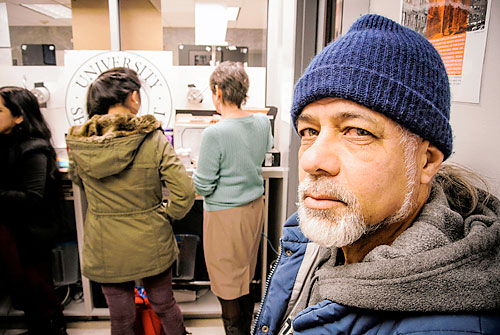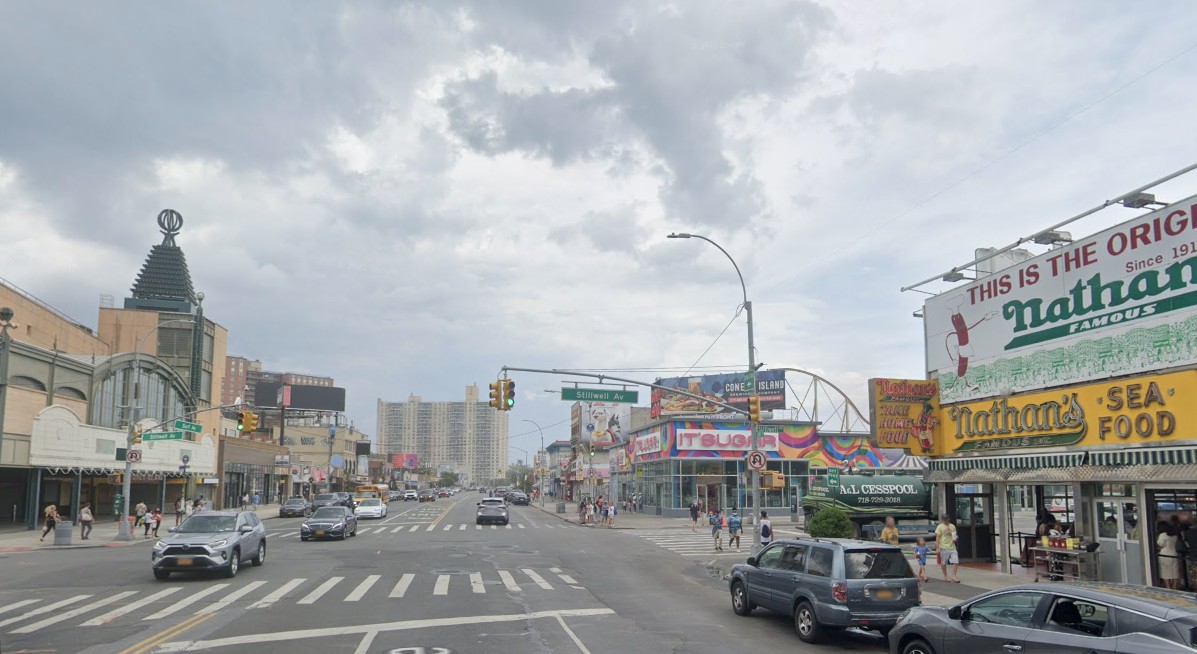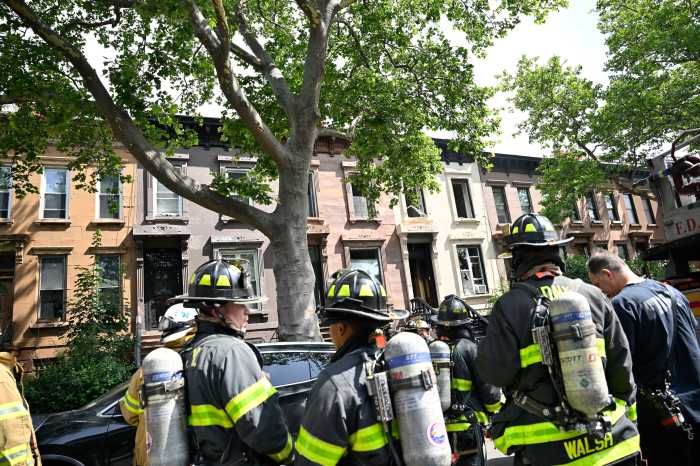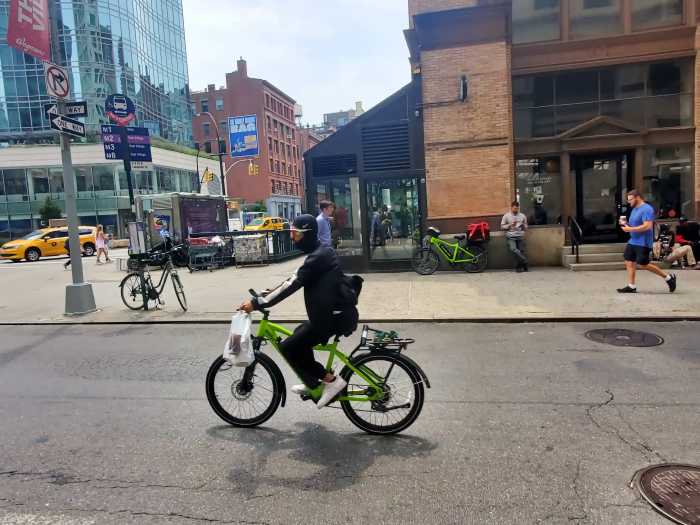Evict housing court!
That is the rallying cry of tenant advocates who say the hall’s small size prevents justice from being served and the city should stop renting it from a notorious slumlord when its lease runs out at the end of May. In addition to being owned by a real estate tycoon who landed on Mayor DeBlasio’s list of worst landlords in the city back when he was public advocate, the building where building owners and tenants go to settle scores is too small and ill-equipped for the hordes who come each day.
“It’s a horror story down there,” said Delcina Biggs, a tenant leader with the Pratt Area Community Council who spent four years fighting a spurious eviction in the court. “The building is inadequate. That’s the bottom line.”
Housing court handles cases involving building owners and tenants, both for potential evictions and for tenants trying to force their landlords to make building repairs, though activists argue that system’s slant in favor of landlords is clear if you consider that 14 of 15 courtrooms are dedicated to eviction proceedings. Last year, the Brooklyn housing courts processed 70,349 cases, according to data from the civil court clerk’s office.
The city has leased the 18-story office building on Livingston Street, between Smith Street and Red Hook Lane, since 1983. In addition to the housing court, the building also contains the civil and small-claims courts for Kings County. Pols and gadflies say there is not enough room under the roof for justice to be served.
“It’s just not an appropriate building,” said Jackie del Valle, an organizer with the social justice group Fifth Avenue Committee. “The building is too small.”
Overcrowding prevents tenants from waiting for their cases to be called in the actual courtrooms. Instead, they are forced to stand in the hall, near enough to the door to hear a court officer call their name when the case comes up. If someone misses being called, he or she could lose the case.
“It’s a nightmare,” said Junie Desire, a Park Slope resident who has been battling a supposedly bogus eviction for more than a year. “You have to stay right there. You can’t even leave, even to get something to eat.”
The lack of space also means that lawyers approach tenants in the hall and try to get them to sign papers and make agreements that would sink their chances at a fair hearing, rabble-rousers said.

“Legal proceedings are happening in the hallways instead of the courtrooms,” said del Valle.
Jenny Laurie works in the hall as assistant director of Housing Court Answers, an organization that provides people with free legal help in housing court cases.
Her group keeps an information table for waiting litigants and says lawyers practicing in these conditions is bad news.
“There’s no privacy. No time to think, or to look over your papers,” Laurie said. “It’s a madhouse.”
Activists’ other gripe is that the city rents the structure from David Bistricer, who bought it back in 2002. Bistricer owns a ton of real estate around Brooklyn and in Manhattan and made then-Public-Advocate Bill DeBlasio’s blacklist in 2010 because of the 6,475 building violations at Flatbush Gardens, a sprawling 59-building housing complex in East Flatbush. Back then, DeBlasio penned letters to Mayor Bloomberg and the Department of Citywide Administrative Service, the agency in charge of leases for city-used property, urging them to not renew the lease for housing court unless Bistricer cleaned up his act.
“I urge you to consider what steps the City, as a commercial tenant of a considerable size, might take to improve conditions for residential tenants of Flatbush Gardens. Steps might include anything from rendering future lease renewals contingent upon significant demonstrated efforts to improve conditions to refusing to renew leases,” he wrote.
In 2013 the city paid Bistricer’s company, Berkshire Equities, $10.5 million for the Livingston Street space as well as other properties, according to the comptroller’s office.
His Flatbush buildings still have 1,273 open violations, according to data from the city’s housing department that was updated March 1.
The situation makes Brooklyn tenants feel even worse about their legal woes, Biggs said.

“It’s just an added reason why you can’t feel like you go down there and get a fair shot,” she said.
Bistricer and his son donated a total of $7,450 to DeBlasio’s 2013 mayoral campaign and the newly elected Hizzoner has not criticized the fat cat since.
A mayoral spokeswoman refused to comment on the city’s rental arrangement with her boss’ former target.
With the current lease coming due in the next couple of months, the Department of Citywide Administrative services says it is looking at new places to put the courts while also haggling with Bistricer.
“We are looking for alternative locations, while negotiating details of a lease renewal that will ensure needed upgrades to the Kings County Civil Court space at 141 Livingston St. in Brooklyn,” said Jerome White, a spokesman for the agency.
Advocates admit finding a new space is no easy task.
“It needs to be centrally located, needs to be a big space and a secure space,” said Laurie. “And that’s not easy to find in Downtown Brooklyn.”
The tight timetable means a lease with an escape option might have to be brokered if the city wants to move.


























